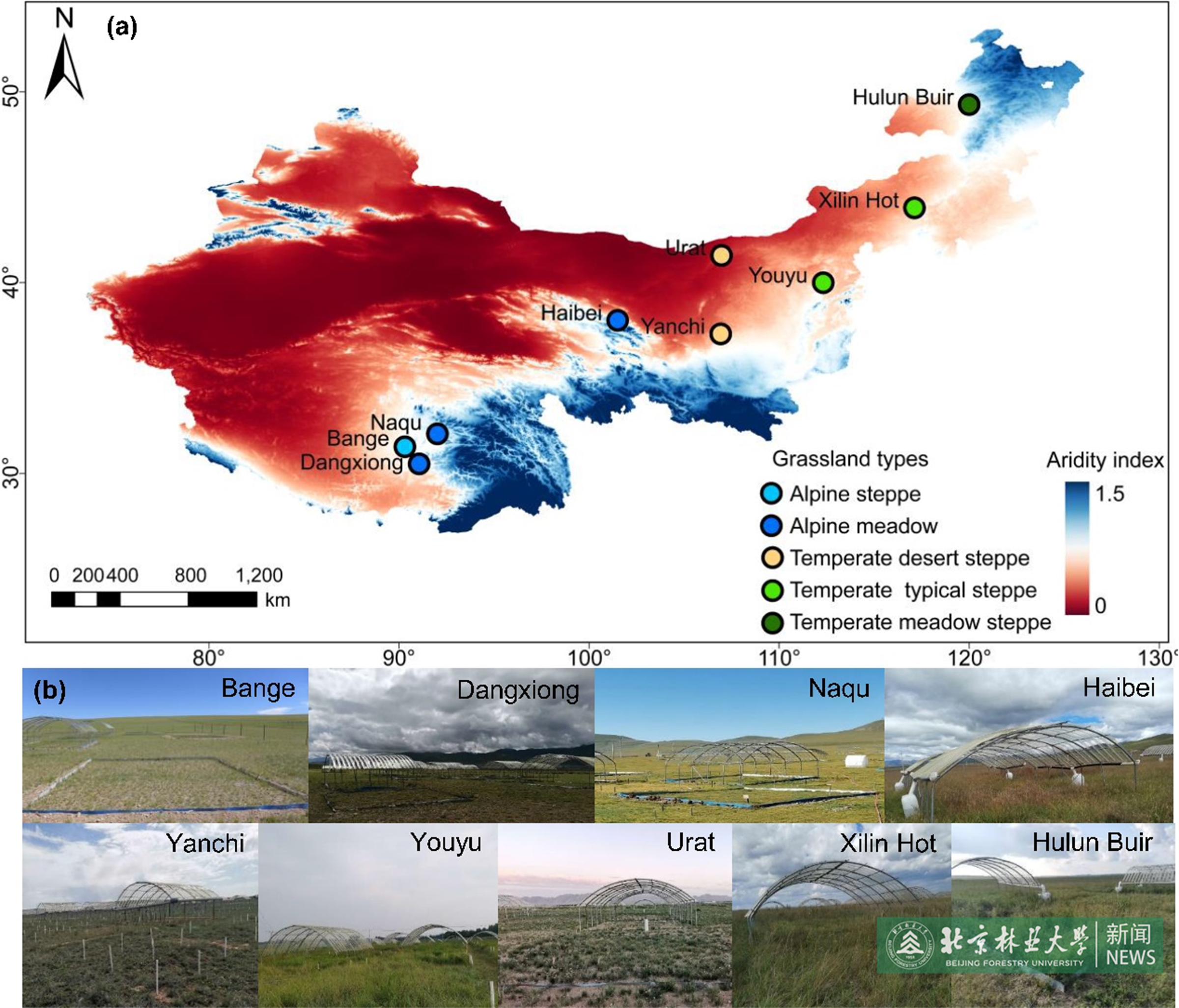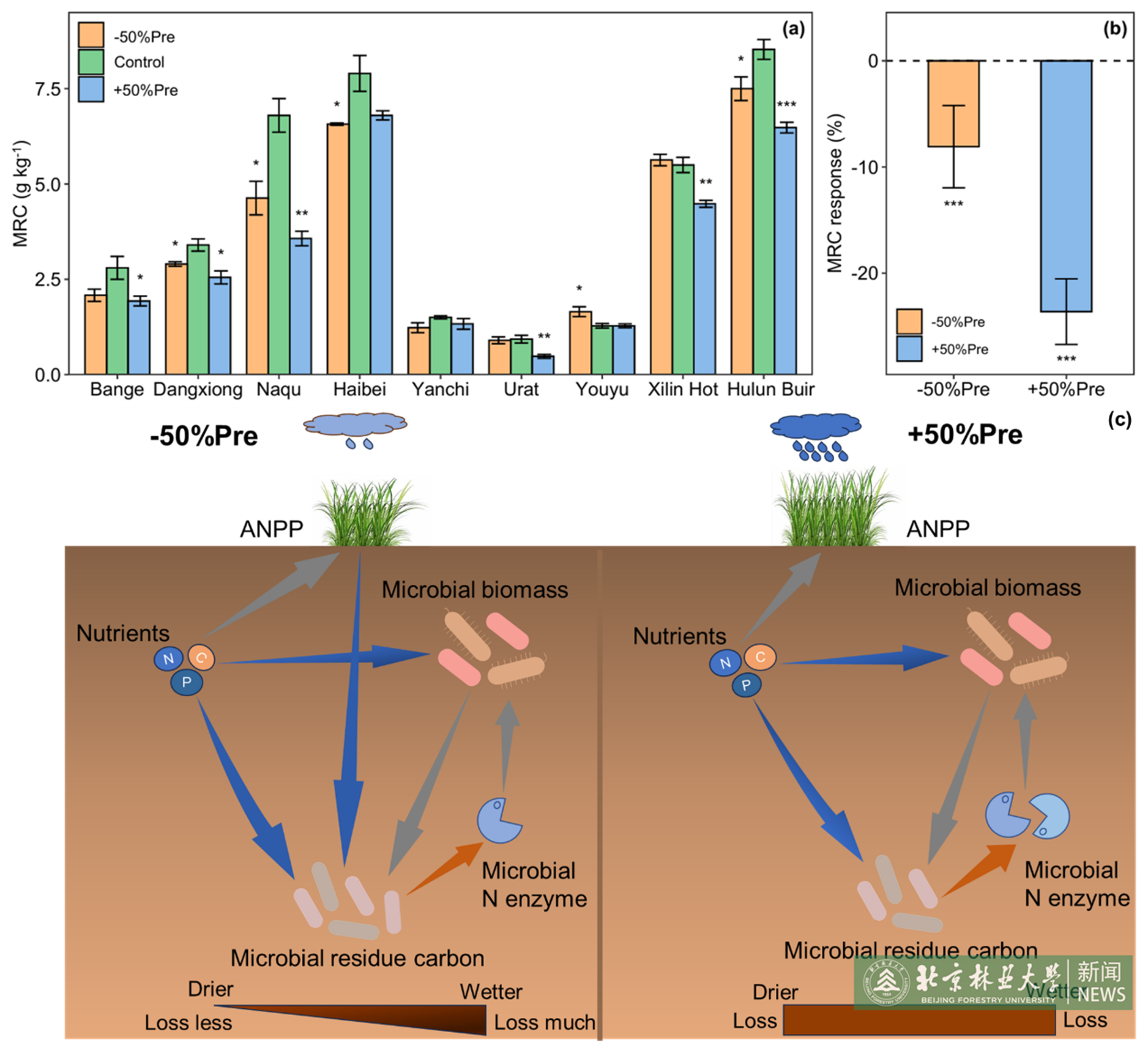Latest news
A joint research team led by Professor Yu Qiang from the College of Grassland Science and Researcher Zhang Xinyu from the Institute of Geographic Sciences and Natural Resources Research, Chinese Academy of Sciences (CAS), together with scientists from seven other institutions including the Northwest Institute of Plateau Biology (CAS), Ningxia University, and Shanxi Agricultural University, has recently published a study titled "Extreme wetness reduces soil microbial residue carbon more substantially than extreme drought across grassland ecosystems" in Global Change Biology. The research examines the effects of extreme drought and wetness on soil microbial residue carbon (MRC) in grassland ecosystems.

Soil microbial residue carbon (MRC) represents a significant component of soil carbon pools and regulates the response of soil carbon sequestration to precipitation changes. However, the response of soil MRC to extreme drought and wetness and the underlying mechanisms in regional grassland ecosystems remain unclear. Here, we quantified the responses of soil MRC content to extreme drought and wetness and identified the key drivers using a coordinated precipitation change experiment across nine alpine and temperate grassland ecosystems in China. Extreme drought (−50% precipitation) reduced MRC content by 8% on average. In contrast, extreme wetness (+50% precipitation) unexpectedly caused a pronounced 24% average decline in MRC content. Under extreme drought, reduced plant biomass inhibited soil MRC formation, and soil microbial N enzyme activity accelerated soil MRC decomposition. Moreover, wetter ecosystems exhibited greater losses of soil MRC, whereas drier ecosystems experienced a smaller decline. Under extreme wetness, increased soil microbial N enzyme activity accelerated the decomposition and utilization of microbial residue due to intensified microbial nitrogen limitation, resulting in a reduction in MRC. Our findings challenged the conventional understanding that extreme wetness promotes MRC accumulation by revealing a stronger reduction in MRC content under extreme wetness than under extreme drought. By uncovering distinct mechanisms driving MRC responses to extreme drought and wetness, our study provides critical insights into the dynamics of microbial-derived carbon in grassland ecosystems under future climate change.

Yu Yingchao, a doctoral student at the Institute of Geographic Sciences and Natural Resources Research, Chinese Academy of Sciences, is the first author of the paper, and Professor Yu Qiang and Researcher Zhang Xinyu are the corresponding authors.
This study was supported by the National Natural Science Foundation of China (Nos. 32588202, 32241033, 42494823, and 42261144688).
Paper link: https://doi.org/10.1111/gcb.70353
Written by LZhao Yi
Translated and edited by Song He
Reviewed by Yu Yangyang












